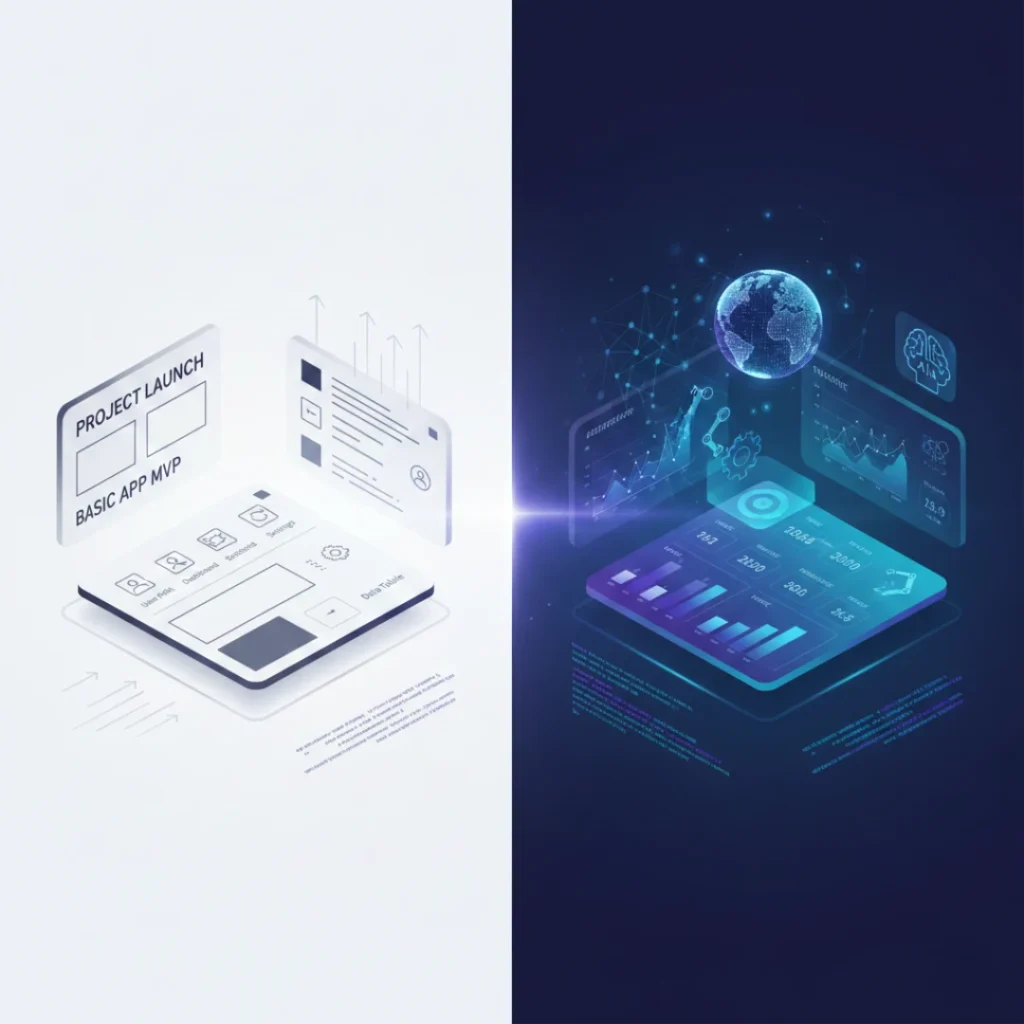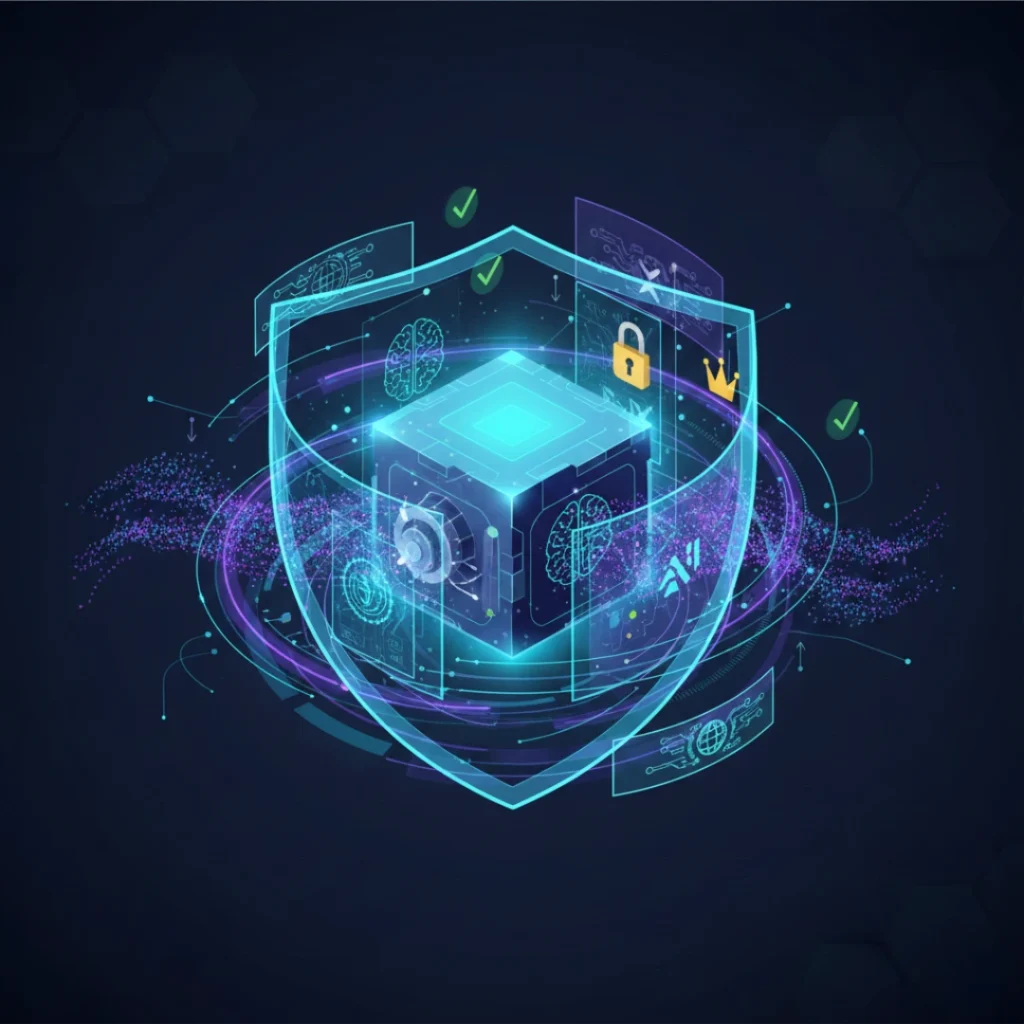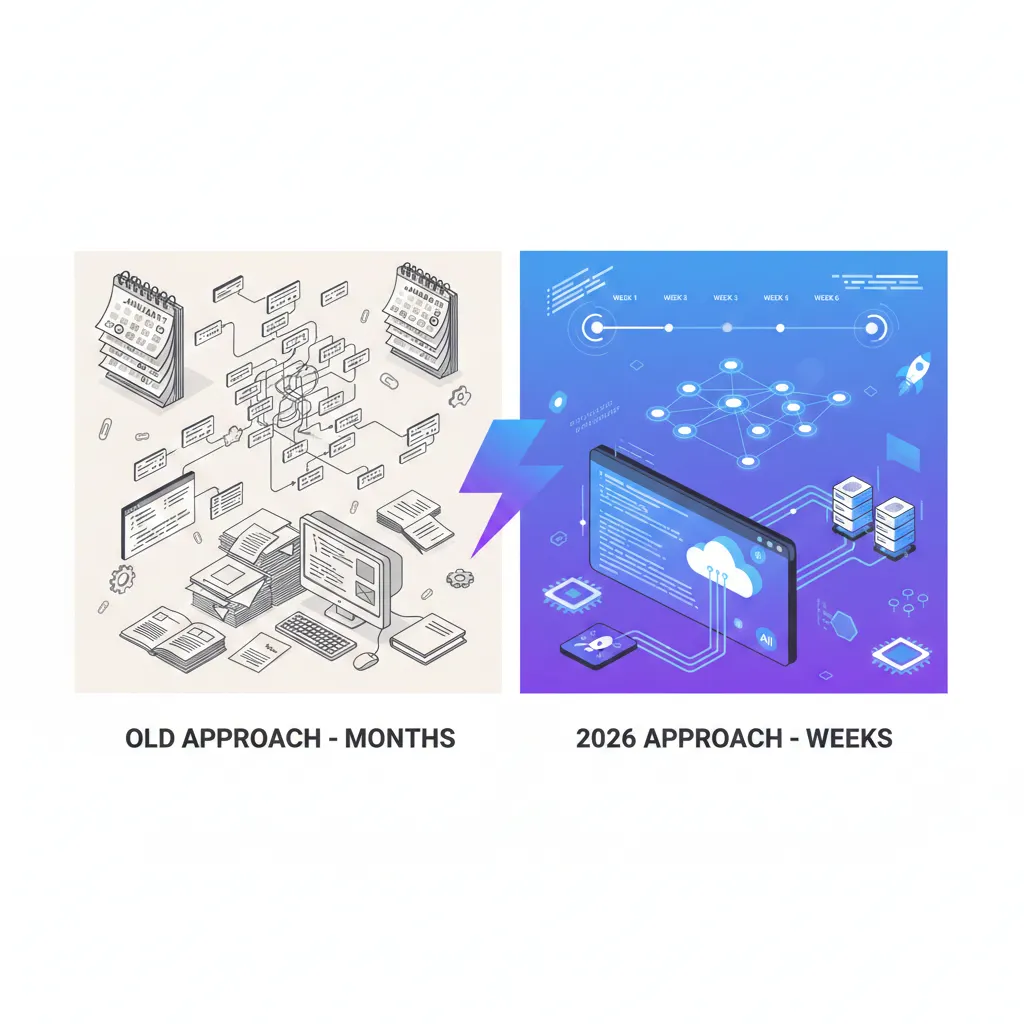The next frontier of business automation is here, and it’s powered by AI agents. No longer confined to science fiction, autonomous AI agents are now a tangible, strategic asset that can execute complex tasks, interact with systems, and make decisions to drive unprecedented levels of efficiency and innovation. For businesses looking to gain a significant competitive edge, the question is no longer if they should invest in AI agents, but how and with whom.
This is where partnering with a specialized AI agent development company becomes critical.
This definitive guide is designed for business leaders, product managers, and innovators who are ready to move beyond basic automation. We will provide a transparent, in-depth look into the entire AI agent development lifecycle, from initial concept to deployment and scaling. We’ll cover the strategic process, realistic cost considerations, powerful real-world use cases, and—most importantly—how to select the right development partner to turn your vision into a reality.
What Exactly Is an AI Agent? (And Why It’s More Than a Chatbot)
First, let’s establish a clear definition. An AI agent is an autonomous software entity that can perceive its environment, make decisions, and take actions to achieve specific goals.
Think of it this way:
- A traditional program follows a rigid, pre-defined script.
- A chatbot can understand and respond to language within a limited conversational context.
- An AI agent can reason, plan, and execute multi-step tasks across different applications and systems.
An agent has four key components:
- Perception: It ingests data from various sources (text, images, APIs, databases).
- Planning: It breaks down a high-level goal into a sequence of smaller, executable steps.
- Memory: It maintains both short-term (for the current task) and long-term (for learning and context) memory.
- Action: It uses tools (like calling an API, browsing a website, or sending an email) to interact with its environment and execute its plan.
This ability to autonomously plan and act is what makes AI agents so revolutionary. Building them, however, requires deep expertise in complex systems, a challenge best met by an experienced AI agent development company.
How an AI Agent Development Company Builds Your Solution
Creating a robust, reliable AI agent is a sophisticated process that goes far beyond just writing code. It’s a strategic journey that blends business acumen with deep technical expertise. At Zackriya Solutions, we follow a proven, multi-stage framework to ensure success.
Stage 1: Strategic Discovery and Use Case Definition
This is the most critical phase. Before a single line of code is written, we partner with your stakeholders to define the “what” and the “why.”
- Goal Identification: What specific, measurable business outcome do you want to achieve? (e.g., “Reduce customer onboarding time by 50%,” “Automate 90% of our procurement process.”)
- Process Mapping: We meticulously map the existing human-led process. What steps are taken? What tools are used? What decisions are made?
- Tool & Environment Assessment: What software, APIs, and data sources will the agent need to interact with? We assess the feasibility and constraints of the digital environment.
- ROI Analysis: We build a clear business case, projecting the potential cost savings, revenue generation, or efficiency gains to ensure the project is set up for a positive return on investment.
Stage 2: Architecture Design and Technology Stack Selection
With a clear strategy, the next step is to design the agent’s “brain” and “body.”
- Agent Architecture: We decide on the core agentic framework (e.g., LangChain, LlamaIndex, or a custom framework) and the reasoning engine (e.g., ReAct, Plan-and-Solve).
- LLM Selection: We choose the right Large Language Model (e.g., GPT-4, Claude 3, Llama 3) that offers the best balance of reasoning capability, speed, and cost for your specific use case.
- Memory & Vector Database: We design the agent’s memory system, often using a vector database like Pinecone or Chroma to store and retrieve relevant information.
- Tool Development: We develop the custom “tools” the agent will use—secure API connectors, web scrapers, and database query functions. This is a core competency of a top-tier AI agent development company.
Stage 3: Prototyping and Iterative Development (The MVP)
We believe in delivering value quickly. We build a Minimum Viable Product (MVP) agent that can execute a core part of the target task.
- Controlled Environment: The MVP is tested in a safe, sandboxed environment to ensure it behaves as expected.
- Feedback Loop: We work closely with your team to test the prototype, gather feedback, and identify areas for improvement. This agile, iterative process ensures the final product is perfectly aligned with your needs.
- Capability Expansion: We incrementally add more complex tools and reasoning abilities to the agent, expanding its capabilities with each sprint.
Stage 4: Robust Testing and “Agentic” Quality Assurance
Testing an autonomous agent is far more complex than testing traditional software.
- Unit & Integration Testing: We test each individual tool and the connections between them.
- Red Teaming: We actively try to “trick” or mislead the agent with ambiguous instructions and edge cases to identify failure points and improve its resilience.
- Evaluation Frameworks: We use advanced evaluation frameworks to measure the agent’s success rate, autonomy, and efficiency across a wide range of scenarios. A professional AI agent development company will have a robust methodology for this.
Stage 5: Deployment, Monitoring, and Continuous Improvement
The job isn’t done at launch. We deploy the agent onto a scalable AI infrastructure and provide ongoing support.
- Human-in-the-Loop: For critical tasks, we often implement a “human-in-the-loop” system, where the agent can ask for confirmation or assistance when it encounters a low-confidence situation.
- Performance Monitoring: We track key metrics like task completion rate, tool usage, and operational costs.
- Continuous Learning: We establish a feedback mechanism where the agent can learn from its mistakes and successes, becoming more effective over time.
Unlocking Value: Real-World Use Cases for AI Agents
The applications for AI agents span every industry and business function. Here are some high-impact use cases that an AI agent development company can build for you:
| Business Area | AI Agent Use Case | Tangible Business Impact |
|---|---|---|
| Sales & Marketing | Autonomous Sales Development Rep (SDR): An agent that researches potential leads on LinkedIn, finds their contact information, drafts personalized outreach emails based on their profile, and schedules meetings directly on a sales rep’s calendar. | Dramatically increases lead generation pipeline, frees up human SDRs for high-value conversations, ensures consistent follow-up. |
| Operations & Logistics | Supply Chain Automation Agent: An agent that monitors inventory levels, tracks supplier shipments via their portals, automatically generates purchase orders when stock is low, and finds alternative suppliers if a delay is detected. | Reduces stockouts and overstocking, minimizes manual procurement tasks, improves supply chain resilience. |
| IT & DevOps | Automated Incident Response Agent: An agent that detects system alerts (e.g., from Datadog), diagnoses the root cause by checking logs and system metrics, attempts automated fixes (like restarting a service), and escalates to a human engineer with a full diagnostic summary if the issue persists. | Drastically reduces mean time to resolution (MTTR), minimizes system downtime, allows engineers to focus on proactive work instead of reactive firefighting. |
| Finance & Accounting | Intelligent Accounts Payable Agent: An agent that ingests invoices from an email inbox, uses OCR to extract data, validates the data against purchase orders in the ERP system, and schedules the payment for approval. | Eliminates manual data entry, reduces invoice processing time from days to minutes, minimizes human error and fraud risk. |
| Customer Support | Proactive Customer Success Agent: An agent that monitors product usage data to identify customers who are at risk of churning. It can then proactively send helpful resources, schedule a check-in with a human success manager, or offer a discount to retain the customer. | Reduces customer churn, improves customer lifetime value (LTV), scales customer success efforts without a linear increase in headcount. |
These are just a few examples. The right AI agent development company can work with you to design a Custom AI Solution for virtually any complex, repeatable digital process.
The Investment: Understanding the Cost of AI Agent Development
Providing a single, flat price for AI agent development is impossible, as the cost is directly tied to the project’s complexity. However, we can provide a transparent breakdown of the factors that influence the investment.
- Task Complexity: Is the agent performing a simple, linear task or a complex, dynamic one requiring sophisticated reasoning?
- Number of Tools: How many different systems, websites, and APIs does the agent need to interact with? Each tool adds development and maintenance overhead.
- Required Autonomy: Does the agent need to be fully autonomous, or will it operate with a human-in-the-loop? Higher autonomy requires more robust testing and safety measures.
- Data Security & Compliance: Does the agent handle sensitive data (PII, PHI) that requires adherence to regulations like GDPR or HIPAA?
Ballpark Cost Tiers:
- Proof-of-Concept (PoC) / MVP Agent ($15,000 – $40,000): A simple agent designed to execute a core task with a limited number of tools. The goal is to prove feasibility and demonstrate value quickly.
- Production-Grade Business Process Agent ($40,000 – $100,000+): A robust, fully integrated agent designed to automate a critical business function. This includes comprehensive testing, deployment, and monitoring.
- Highly Complex, Fully Autonomous Agent ($100,000 – $250,000+): An advanced agent that operates with a high degree of autonomy in a dynamic environment, often involving complex planning and learning capabilities.
Focus on ROI, Not Just Cost: The most important financial metric is the return on investment. A $75,000 agent that saves your company $300,000 annually in operational costs is an incredibly valuable investment. A top AI agent development company will help you build this business case from day one.
How to Choose the Right AI Agent Development Com
Selecting the right partner is the single most important decision you will make in this journey. A great partner accelerates your success; a bad one will burn your time and capital. Use this checklist to evaluate potential partners:
- Do they have a strategic, business-first approach? They should start by asking about your business goals and ROI, not just about technology. Look for a partner who acts as a strategic consultant.
- Can they show you a portfolio of real-world AI projects? Ask for Case Studies or demos of agents they have built. Vague promises are a red flag; proven experience is essential.
- Do they have deep expertise in the full AI stack? They need more than just Python skills. A true AI agent development company has deep expertise in LLMs, agentic frameworks, vector databases, MLOps, and cloud infrastructure.
- Is their development process transparent and collaborative? Look for a partner who emphasizes an agile, iterative process with regular communication and feedback loops. You should never be in the dark about the project’s progress.
- Do they have a clear methodology for testing and ensuring agent reliability? Ask them specifically how they test for edge cases and prevent hallucinations or erratic behavior. A lack of a clear answer is a major warning sign.
- Do they offer end-to-end services, including deployment and ongoing support? The best partners don’t just hand you a piece of code. They help you deploy it, monitor it, and improve it over time, ensuring long-term success.
The Future is Autonomous. Are You Ready?
AI agents represent a fundamental shift in how work gets done. Businesses that embrace this technology will operate with a level of speed, intelligence, and efficiency that their competitors simply cannot match.
The journey from concept to a fully functional AI agent is complex, but the rewards are immense. By partnering with a world-class AI agent development company, you can navigate this complexity with confidence and build a powerful, proprietary asset that will drive your business forward for years to come.
If you are ready to explore how a custom AI agent can revolutionize your business, our team of experts is here to help.
Contact Us Today for a Complimentary AI Agent Strategy Session
Frequently Asked Questions
A simple Proof-of-Concept (PoC) agent typically costs between $15,000 – $40,000. A fully integrated, production-grade agent for a core business process usually ranges from $40,000 to $100,000+, depending on its complexity.
While large tech companies build general AI platforms, specialized firms like Zackriya Solutions are the ones building practical, custom AI agents for specific business tasks. We focus on creating deployable solutions that solve real-world operational problems.
The “Big 4” typically refers to the consumer-facing voice assistants: Amazon’s Alexa, Google Assistant, Apple’s Siri, and Microsoft’s Cortana. Business-focused AI agents are a distinct, more advanced category designed for autonomous task execution.
For foundational AI research, the leaders are giants like Google and OpenAI. For applying that technology to create custom business solutions, the leaders are expert development partners. Zackriya Solutions is a leading AI agent development company focused on turning advanced AI into tangible business value.
A chatbot reacts to user input within a conversation. An AI agent is proactive and autonomous—it can create and execute multi-step plans across different software applications to achieve a goal without human intervention.
A Proof-of-Concept (PoC) can be built in 4-8 weeks. A full, production-ready agent typically takes 3-6 months to develop, test, and deploy.
An AI agent can use a wide range of digital tools, including calling APIs, browsing websites, querying databases, sending emails, and reading or creating documents and reports.
We ensure reliability through rigorous testing in sandboxed environments, robust error handling, and implementing human-in-the-loop approval steps for critical actions.
No. As a full-service AI agent development company, we handle the entire lifecycle, including development, deployment, and ongoing monitoring. We provide a fully managed solution.
The first step is a Strategic Discovery Session. It’s a brief consultation to identify a high-impact use case in your business and determine the project’s feasibility and potential ROI.




